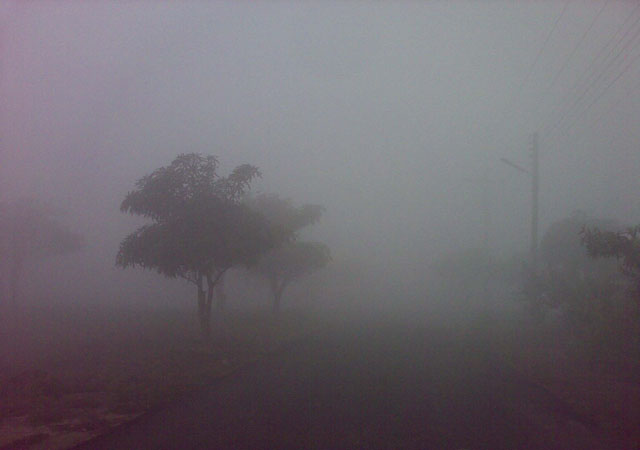Punjab winters memories of Vancouver-based Indo-Canadian writer Ashok Bhargava of his childhood
By Ashok Bhargava VANCOUVER: 2013 has nearly ended, and 2014 is about to begin! Endings and beginnings are always an exciting time – a time to look back over the year and remember the highlights and then look forward into the new year and set some goals and plan for what lies ahead. As I look back in my own archives, I see many laughs and tears, failures and successes that I have much to be proud. I also see friends and relatives who are long gone but their faces and voices are still in my memories. My first memory of a new year as a child is the city of Jalandhar, that of an early morning when I woke up and looked out of the window to see the front lawn is white, silent and peaceful with the frost. Like of most of other mornings, we were required to take bath in the cold water on a new year day. It was told to us that we would stay clean, fresh and energetic for rest of the year if we take cold bath on the first day of a new year. Such was the belief based on cultural tradition which could not be ignored even if you were sick. Then we were to invoke the gods through a Havan ceremony starting with a worship of Swastika and Ganesha. Haven is a ritual in which making offerings into a consecrated fire to the gods is the primary action. [caption id="attachment_86976" align="alignnone" width="640"] Winter in Punjab.[/caption]
Winter in Punjab means long dark evenings – a time for family get-togethers. Winter turns Punjabis into story tellers; they huddle around coal stoves called angeddi, and tell stories and interesting episodes of their lives.
For my family the new year was also a time to enjoy the winter cuisines such as corn-roti, green mustered saag, rice cooked in cane juice and vegetable pickles etc. There was a tradition in Punjabi households to dry all sorts of vegetables to pickle them. I remember garlands of red chillies, turnips and cauliflowers hanging from windowsills or spread over the roof during summer. After the harvest, the mango pickle was stored in large earthen urns called wyams or mattakas.
My mother had a beautiful voice and an amazing memory. She would tell us stories all through the evening, breaking only for hot cups of chai. She would retell the epic story of Rama’s birth, Krishna and cowgirls and other mythical stories through verbal images that have remained with me forever. I can recall those stories word for word even today.
There were hardly any televisions or telephones. Life was simple and revolved around temples and gurdwaras. Those fabled winters of Punjab now live in memories alone.
There was an old man in our neighbourhood who used to say “every end is a new beginning” and now I realize the true meaning of his saying. Spring ends in summer, followed by autumn and winter and back to spring again. This is the life cycle we all have to go through. Death leads to reincarnation, at least that’s what Hindus believe. As I enter the fall season of my life, I can attest to the saying of my childhood, “every end is a new beginning.”
Happy New Year and all the best, my friends, yes it is the end of old year and dawn of a brand-new year.
(Ashok Bhargava is the president of Writers International Network Canada)
READ NEXT: How his lady pen pal brought Ashok Bhargava to Canada
Winter in Punjab.[/caption]
Winter in Punjab means long dark evenings – a time for family get-togethers. Winter turns Punjabis into story tellers; they huddle around coal stoves called angeddi, and tell stories and interesting episodes of their lives.
For my family the new year was also a time to enjoy the winter cuisines such as corn-roti, green mustered saag, rice cooked in cane juice and vegetable pickles etc. There was a tradition in Punjabi households to dry all sorts of vegetables to pickle them. I remember garlands of red chillies, turnips and cauliflowers hanging from windowsills or spread over the roof during summer. After the harvest, the mango pickle was stored in large earthen urns called wyams or mattakas.
My mother had a beautiful voice and an amazing memory. She would tell us stories all through the evening, breaking only for hot cups of chai. She would retell the epic story of Rama’s birth, Krishna and cowgirls and other mythical stories through verbal images that have remained with me forever. I can recall those stories word for word even today.
There were hardly any televisions or telephones. Life was simple and revolved around temples and gurdwaras. Those fabled winters of Punjab now live in memories alone.
There was an old man in our neighbourhood who used to say “every end is a new beginning” and now I realize the true meaning of his saying. Spring ends in summer, followed by autumn and winter and back to spring again. This is the life cycle we all have to go through. Death leads to reincarnation, at least that’s what Hindus believe. As I enter the fall season of my life, I can attest to the saying of my childhood, “every end is a new beginning.”
Happy New Year and all the best, my friends, yes it is the end of old year and dawn of a brand-new year.
(Ashok Bhargava is the president of Writers International Network Canada)
READ NEXT: How his lady pen pal brought Ashok Bhargava to Canada